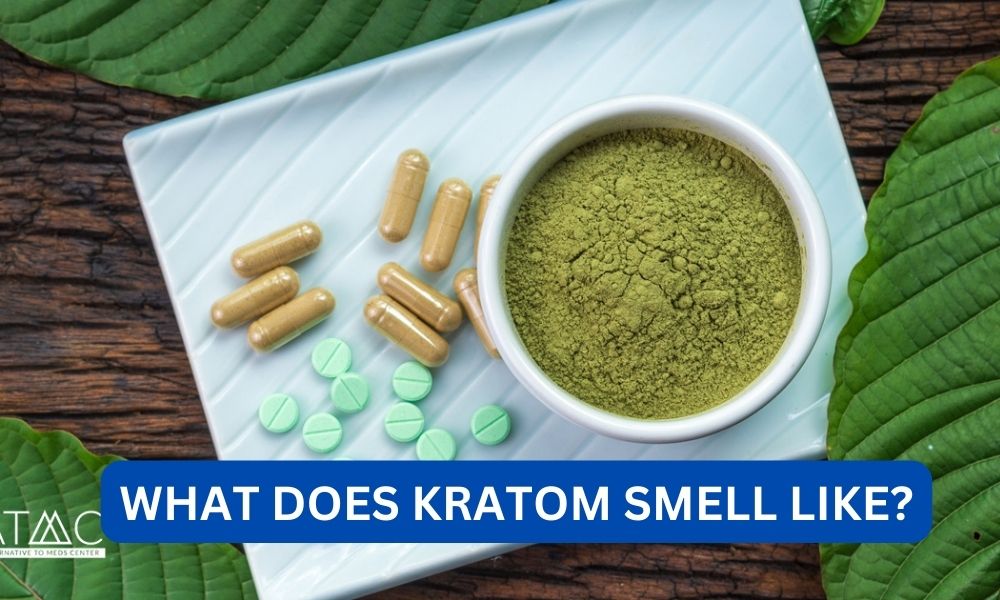Kratom, a tropical evergreen tree native to Southeast Asia, has gained popularity in recent years for its potential health benefits. This natural herb is known for its unique aroma, which can vary depending on the strain and quality of the product. In this article, we will explore the different scents associated with kratom and delve into the factors that contribute to its smell.
Contents
The natural scent of kratom
When you first encounter kratom, you may notice a distinct and earthy smell. The natural scent of kratom leaves can be described as a combination of herbal, grassy, and slightly bitter notes. Some users compare it to the smell of freshly cut grass or green tea. This aroma is often attributed to the presence of various alkaloids and other compounds found in kratom leaves.
It’s important to note that the smell of kratom can vary depending on the strain and the drying process. Different strains of kratom have unique chemical compositions, resulting in variations in scent. Additionally, the drying method used can also influence the aroma of the final product.
Factors influencing the smell of kratom
Several factors contribute to the smell of kratom. Understanding these factors can help you better appreciate the nuances of this natural herb:
Read:What year chevy truck tailgates interchange?- Strain: Kratom comes in various strains, such as Bali, Maeng Da, and Borneo. Each strain has its own distinct scent profile. For example, Bali kratom is often described as having a sweet and earthy aroma, while Maeng Da kratom is known for its strong and pungent smell.
- Quality: The quality of kratom can greatly impact its smell. High-quality kratom tends to have a fresher and more potent aroma, while lower-quality kratom may have a dull or musty smell.
- Age: As kratom ages, its scent can change. Fresh kratom leaves typically have a stronger and more vibrant aroma compared to older leaves.
- Processing: The way kratom is processed can also affect its smell. Some manufacturers may use different drying techniques, such as sun drying or indoor drying, which can result in variations in scent.
Common descriptors for kratom smell
While the natural scent of kratom can be challenging to describe accurately, users often use various descriptors to capture its aroma. Here are some common terms used to describe the smell of kratom:
- Earthy: The earthy scent of kratom is often likened to the smell of soil or the forest floor. It has a natural and grounding quality.
- Grassy: Some users describe kratom as having a grassy aroma, similar to freshly cut grass or hay.
- Herbal: Kratom’s herbal scent is reminiscent of other botanicals and can be compared to the aroma of green tea or certain spices.
- Bitter: Kratom leaves contain alkaloids that contribute to their bitter taste and scent. The bitterness is often noticeable in the aroma.
- Medicinal: Some individuals perceive kratom’s smell as medicinal, similar to certain herbal remedies or traditional medicines.
Case studies and user experiences
While the scent of kratom is subjective and can vary from person to person, many users have shared their experiences and impressions of its smell. Here are a few case studies and testimonials:
Read:What would dolly do sticker?Case Study 1: John
John, a long-time kratom user, describes the smell of his favorite strain, Maeng Da, as intense and pungent. He compares it to the scent of strong black tea with a hint of bitterness. John believes that the aroma of Maeng Da kratom is a testament to its potency and effectiveness.
Case Study 2: Sarah
Sarah, a new kratom user, tried Bali kratom for the first time. She found the smell to be earthy and slightly sweet, similar to the scent of fresh leaves. Sarah appreciates the natural aroma of Bali kratom and believes it adds to the overall experience of consuming the herb.
Case Study 3: Michael
Michael, an experienced kratom enthusiast, has tried various strains over the years. He finds that each strain has its own unique scent, ranging from earthy and herbal to more floral or spicy notes. Michael enjoys exploring the different aromas of kratom and believes they contribute to the overall diversity of the plant.
Conclusion
The smell of kratom is a fascinating aspect of this natural herb. Its unique aroma, often described as earthy, grassy, and herbal, can vary depending on the strain, quality, age, and processing methods. While the scent of kratom is subjective and can differ from person to person, it adds to the overall experience of using this botanical. Whether you find the smell of kratom appealing or not, it is an integral part of the herb’s identity and contributes to its allure.
Read:What is a silver homie?By understanding the factors that influence the smell of kratom and exploring user experiences, we can gain a deeper appreciation for this natural herb. So, the next time you encounter the distinct scent of kratom, take a moment to appreciate its complexity and the rich world of aromas it offers.









